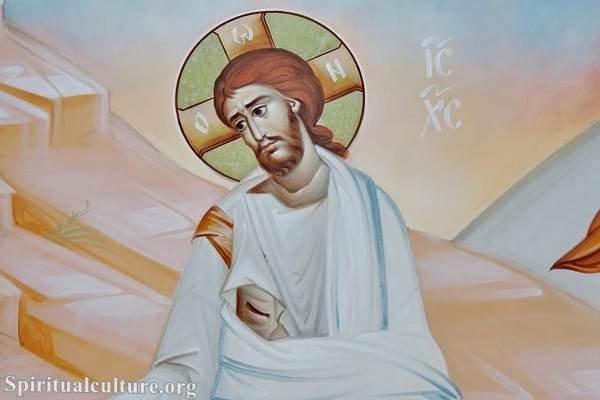From the earliest days of the Church until today, Christianity has stood as a radiant witness to the inestimable value of every human life. This belief is not simply an ethical stance or a moral theory—it is a divine revelation, a sacred truth inscribed into the very heart of creation and fulfilled in the person of Jesus Christ.
Why does Christianity uphold human dignity so fiercely? Because it sees in each person not just a body or a brain, but a bearer of the image of God. This article explores the profound roots and far-reaching implications of Christianity’s view of human life—from the biblical foundation to its impact on culture, justice, ethics, and the call to love.
Let us journey together into the beauty and responsibility of what it means to be made in God’s image—and to treat others accordingly.
Humanity in God’s Image: The Foundation of Christian Dignity
“Let Us Make Man in Our Image…”
The cornerstone of Christianity’s belief in the value of human life is found in Genesis 1:26–27:
“Then God said, ‘Let us make man in our image, after our likeness… So God created man in his own image, in the image of God he created him; male and female he created them.’”
To be human, then, is to carry a sacred imprint. Unlike any other creature, humans are made in the Imago Dei—the divine image. This doesn’t mean physical appearance, but rather moral, relational, and spiritual capacity. It means we are made to reflect God’s creativity, reason, freedom, and love.
Every life, regardless of age, ability, ethnicity, or status, possesses inherent worth because of this divine reflection. Christianity insists: no life is disposable, no person is beyond dignity.
More Than Biology
This view challenges purely biological or utilitarian definitions of worth. In a world where value is often based on performance, productivity, or perfection, Christianity dares to say: you matter because God made you—and loves you.
You are not an accident. You are not a number. You are known, seen, and wanted.
Jesus and the Radical Elevation of Human Life
God Became Human
If Genesis begins the story, the incarnation brings it to its climax. Christianity proclaims a stunning truth: God Himself took on human flesh. John 1:14 declares,
“The Word became flesh and made his dwelling among us.”
This was not just symbolic. It was the ultimate declaration of worth: that humanity was not something to be discarded or bypassed, but embraced and redeemed.
In Jesus Christ, we see the fullest revelation of what it means to be human. He wept, ate, slept, walked, touched, taught, healed, forgave, and ultimately gave His life—for us. In doing so, He revealed not only God’s love, but the true value of each human life.
The Cross and Human Worth
“But God shows his love for us in that while we were still sinners, Christ died for us.” (Romans 5:8)
What greater testimony to human worth than the cross? Christianity teaches that Jesus died not just for “good people” but for all—because all are valuable. No sin disqualifies, no scar diminishes the love of God for a soul.
The value of life is not earned—it is bestowed, affirmed in blood, and sealed in resurrection.
Early Christians: A Countercultural Defense of Life
Resisting Roman Brutality
In the Roman Empire, life was cheap. Infanticide, abortion, gladiatorial games, slavery, and casual cruelty were normal. But the early Christians lived differently. They rescued abandoned infants. They refused to kill or participate in unjust violence. They treated slaves as brothers and sisters in Christ.
Why? Because they believed every life bore the image of God—and that Christ had died for all.
Hospitals and Orphanages: Faith in Action
Christianity didn’t just proclaim the value of life—it embodied it. The world’s first hospitals, orphanages, and leprosariums were founded by Christians. During plagues, while others fled, Christians stayed to care for the dying.
Their logic was simple but radical: if Christ has loved us so extravagantly, how can we withhold love from others?
Modern Implications: Life at Every Stage and Situation
From Womb to Tomb
Christianity’s pro-life ethic is holistic. It doesn’t begin and end with birth—it encompasses every stage of life:
- The unborn child is sacred, not a potential life, but a life with potential.
- The poor and marginalized are not to be pitied or ignored, but welcomed as Christ Himself.
- The elderly and disabled are not burdens, but bearers of dignity.
- The dying are to be accompanied with tenderness, not hastened toward death.
Psalm 139 celebrates this sacredness:
“For you formed my inward parts; you knitted me together in my mother’s womb… I praise you, for I am fearfully and wonderfully made.” (Psalm 139:13–14)
Justice and Mercy Go Hand in Hand
Christianity’s defense of life includes a call to justice. Proverbs 31:8 says:
“Speak up for those who cannot speak for themselves.”
This means protecting the vulnerable, advocating for the oppressed, and refusing to remain silent in the face of abuse, racism, exploitation, or neglect.
To value life is to fight for those whose lives are diminished or endangered.
Compassion, Not Condemnation
Healing After Failure
Christianity holds high the value of life, but it also holds wide the arms of mercy. Many have experienced the pain of abortion, war, injustice, or regret. The message of the gospel is not: “You failed.” It is: “Come home.”
There is grace. There is healing. There is a new beginning.
The Good Samaritan Spirit
Jesus’ parable of the Good Samaritan (Luke 10) reminds us that love is not abstract—it is messy, costly, and urgent. The priest and Levite passed by, but the Samaritan stopped, touched, bandaged, carried, paid, and promised to return.
This is the call of Christians today: to notice, to care, to act.
In a World That Forgets, Christianity Remembers
The Culture of Death vs. the Gospel of Life
We live in a world increasingly numb to the sacredness of life. Violence is normalized. Utility is idolized. The weak are often dismissed.
But Christianity sings a different song. It calls us back to wonder. Back to reverence. Back to the God who knows every hair on our head and every beat of our heart.
Why It Still Matters Today
To uphold the value of human life is not a political slogan. It is a spiritual discipline. It requires prayer, courage, empathy, and humility. It means listening to others’ stories, advocating for systemic change, and embodying the love of Christ.
Reflect and Reimagine
Christianity teaches us that to be human is to be beloved. Every person you see today—friend, stranger, enemy—is someone Christ died for. Every heartbeat is holy. Every soul is sacred.
So what does this mean for you?
- Will you see others differently? Not as problems or projects, but as precious.
- Will you honor the image of God in yourself? You are more than your mistakes. You are not forgotten.
- Will you let this truth shape how you vote, work, speak, and serve?
The value of human life is not a doctrine to memorize—it is a truth to live.
Spiritual Culture invites you to walk gently in a world that rushes, to love boldly in a world that judges, and to treasure life—in all its forms—as the miracle it truly is.
Let the image of God in you recognize the image of God in others. And may that recognition transform how you live, forever.


